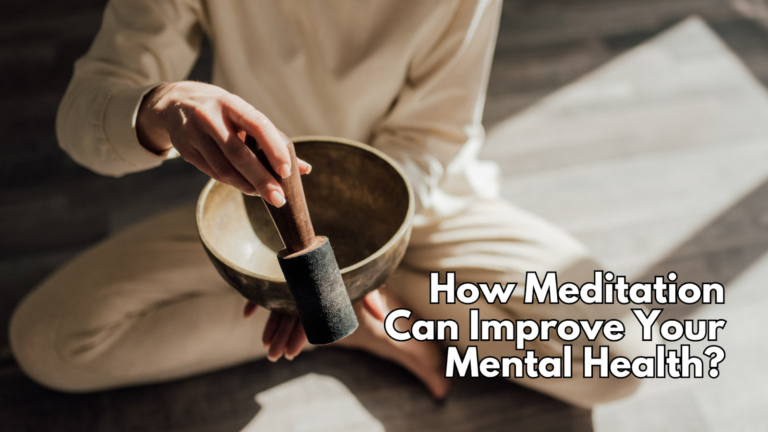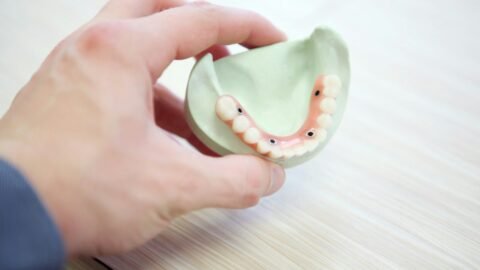Mental health is one of the most important aspects of life. It decides your perception of life, relationships, productivity, and stress resistance. Meditation, an ancient practice, has become a powerful tool to improve mental health with the concept of mindfulness and a clear mind.
A variety of research suggests that meditation helps reduce stress, enhance emotional stability, and even relieve the symptoms of mental health issues. Let’s see how meditation will greatly impact your day for mental well-being.
Why Does Mental Health Matter?
Many people seek different approaches to managing mental health, including traditional therapies, self-care, and lifestyle changes. Meditation provides a practical, accessible way to support treatment for depression and manage anxiety.
Mental health is an important aspect of our overall quality of life. When our mental health is strong, we can better face challenges and have balanced relationships. Mental well-being also affects physical health, including immunity, heart health, and longevity. As stress levels are at all-time highs and the demands of modern life are so intense, mental health issues are more common than ever; therefore, it is a necessity to find effective ways to manage and support mental health.
Meditation Benefits to Mental Health
- Reduces tension levels and promotes relaxation.
- Improves concentration and clearness of the mind
- Reduces symptoms of depression and anxiety
Reducing Stress Levels
One of the most common benefits of meditation is its ability to reduce stress. Mindfulness meditation practice helps quiet the mind and bring you back to the present, which reduces the cycle of overthinking that often fuels stress. When the levels of stress are decreased, the brain functions more efficiently, which leads to a better mental state overall.
- Mindful breathing techniques can reduce cortisol levels.
- Meditation practices can decrease symptoms associated with chronic stress.
Emotional Balance
Meditation helps in the understanding of emotions hence easy to deal with. Emotional balance makes you respond to difficult situations better and not act impulsively. Continual practice of meditation leads to a balanced state of emotions.
- Clarifies emotional regulation.
- Aids in improved interpersonal relations.
Anxiety and Depression Reduction
Different studies reported that meditation would reduce the symptoms of depression and anxiety disorders. Mindfulness-based techniques, such as mindfulness-based stress reduction and mindfulness-based cognitive therapy, are especially effective for managing this type of mental health condition. One focuses on thinking about everything in a mindful manner while trying to free oneself from the bad thoughts in life with understanding and observance rather than judgment.
- Effective as a complementary method for a depression treatment program.
- One fosters constructive thought with self-compassion.
Including Meditation in Your Day
The most difficult part is establishing a habit of meditation, which need not be time-consuming. Five minutes a day can bring about very noticeable improvements. Here are a few ways to bring meditation into your daily routine:
Morning Practice
Meditating first thing in the morning sets a good tone for the day. It will help clear out your mind and prepare you mentally for the challenges that lie ahead.
Guided Meditation
Guided sessions are so useful if you’re just beginning with meditation. For example, Headspace, Calm, and Insight Timer have guided meditations on just about every subject matter relating to mental health.
Some Techniques to Try
- Breath-focused meditation. Helps improve focus.
- Body scan meditation. Calms the body.
- Loving-kindness meditation. Produces more positive feelings.
Physical Benefits of Meditation
While meditation is always believed to work on the psychological level, it has much to say about its ability to aid the physical. This goes on to influence the person’s psychological and mental conditions.
Lower Blood Pressure
Usually, it is the prolonging of anxiety and stress in the blood vessels that results in elevated blood pressure. According to research, normal meditating patterns reduce the stress in blood vessels; when the cardiovascular system does not have strain, the heart finds a state of calm in the brain.
- Calms the body for a sound heart.
- It is the most natural way to keep normal blood pressure levels.
Improves Quality of Sleep
A sleep remedy meditation proves when done before going to sleep. A calm mind after sound sleep ensures better ways to handle psychological stress and anxiety, which leads to improvement in the mental aspect of oneself over time.
Addressing Common Myths about Meditation
Despite its numerous advantages, many myths still prevail that do not allow individuals to attempt meditation. Let’s get rid of some of these myths.
Myth 1: You Need to “Clear Your Mind”
It’s the opposite: observing your thoughts and not becoming entangled in them. It helps one detach from tension and calms a state.
Myth 2: It Takes Too Long
Meditation can be practiced for as little as five minutes a day. You can increase the duration if you want, but even a short practice has benefits.
Myth 3: Meditation is only for relaxation
Relaxation is one of its benefits, but meditation develops focus, resilience, and emotional awareness, making it versatile in supporting different aspects of mental health.
How to Build a Meditation Routine: Tips for Consistency
Consistency is vital when meditating. Here is how to keep it that way as a lifestyle practice:
- Start Small: use five minutes and then scale up to more time
- Choose the Right Time: The appropriate time for you must be identified. You have your morning and right before sleep.
- Use Reminders: Have reminders set every day, or maybe associate meditation with some habitual thing you do like brushing your teeth.
The Long-Term Impacts on Mental Conditions with Meditation
Meditation gradually rewires the brain, leading to long-term mental health benefits. Continuous practice can lead to a cumulative effect of strengthening the prefrontal cortex responsible for decision-making, emotional regulation, and awareness. That means that meditation will assist you both at the time of the experience and also prepare you for the stressors of the future.
Development of Resilience to Stress
Meditation trains the mind to manage stress effectively, helping you stay focused and approach thoughts and emotions mindfully. This practice enhances mental resilience and promotes a calmer approach to problem-solving in challenging situations.
Enhancing Self-Awareness
Becoming more conscious of one’s thoughts and patterns can eventually lead to positive personal development. In turn, higher self-awareness leads to enhanced decision-making, better relations, and life satisfaction.
FAQs
1. How long should I meditate to benefit my mental health?
A daily minimum of five minutes would help. For fuller benefits, try 10–20 minutes a day.
2. Do I need therapy now that meditation is available?
Meditation has its usefulness but is not an alternative to the proper kind of therapy treatment. As an adjunct approach, meditation can be helpful when one is currently in depression or anxiety treatments.
3. Is it normal to feel uneasy or uncomfortable during meditation?
Yes, it’s common to feel this way initially. With regular practice, meditation often becomes more effortless, allowing you to focus and find calm more easily over time.
Conclusion
Meditation has many psychological advantages. In short, it is free, flexible, and easily accessible without being linked to any equipment or specific location. It really matters whether one uses it as a means to control stress and stabilize emotions or to improve overall well-being.
It transforms you in the most profound ways, above the relaxation. Meditation not only perfects your mental health but trains you to be able to face all that life gives you. Begin that journey and let meditation transform your inner world, mental health, and wellness.

Daniel J. Morgan is the founder of Invidiata Magazine, a premier publication showcasing luxury living, arts, and culture. With a passion for excellence, Daniel has established the magazine as a beacon of sophistication and refinement, captivating discerning audiences worldwide.




